
Erik 'eski' Scott
From Fashion to (Sonia) Dada
Interview by SickthingsUK, August 2005
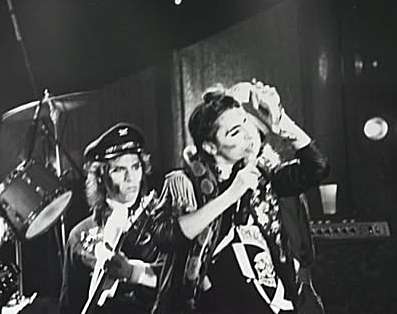 The early 80s was a strange time for Alice Cooper. He released his last four albums for Warner Brothers but they received far less attention then previous works and often left the fans confused. Even today there are many fans who do not like them, while others cite them as Alice's best work. The 80s saw a new sharper, leaner, more modern Alice Cooper and many fans didn't seem able to stay with him through the change.
The early 80s was a strange time for Alice Cooper. He released his last four albums for Warner Brothers but they received far less attention then previous works and often left the fans confused. Even today there are many fans who do not like them, while others cite them as Alice's best work. The 80s saw a new sharper, leaner, more modern Alice Cooper and many fans didn't seem able to stay with him through the change.
Right in the middle of all this was Erik Scott, first as bass player on the 'Flush The Fashion' tour, and later also as co-writer on 'Special Forces' and co-producer as well on 'Zipper Catches Skin'. Too often this part of Alice's career is skipped over so STUK took the chance to talk to Erik about his time with Alice and what he's up to nowadays with his own band of 15 years Sonia Dada.
STUK: Lets start at the beginning with a little background... How did you start playing, and why Bass guitar?
Erik Scott: In 4th grade (about 9 years old in the US) I went to sign up for school band, thinking about drums, cause I dug 'em, and I played air drums to all my favorite records...Jailhouse Rock by Elvis, Peggy Sue by Buddy Holly ( ya I know, we're going back in time here), but the teacher stuck me with the trombone...that reminds me of the old joke: what's the difference between a trombone player and a frog? .....the frog gets more gigs. Anyway, I did play trombone for years in school, while goofing around on the guitar. Then a guitar playing friend said I could play a gig with their band if I could learn the songs on bass.....so I did, although I think I played the same bass line on about half those tunes. But that was the start of the bass for me.
STUK: From what I know you first professional project people would know about was with legendary Frank Zappa associates Flo And Eddie (aka Mark Volman and Howard Kaylan). That must have been a crazy gig! How did you get to hook up with them?
 Erik Scott: In Lake County,Illinois, north of Chicago, I recorded three albums with area bands between 1970 and 1973. The best of these was Otis Plum, a guitar-bass-drums trio probably best known for our raging instrumentals. The guitarist, Billy Steele, later co-wrote and played on "Zorro" and "Adaptable", from the "Zipper Catches Skin" album and also co-wrote 'You Want It,
Erik Scott: In Lake County,Illinois, north of Chicago, I recorded three albums with area bands between 1970 and 1973. The best of these was Otis Plum, a guitar-bass-drums trio probably best known for our raging instrumentals. The guitarist, Billy Steele, later co-wrote and played on "Zorro" and "Adaptable", from the "Zipper Catches Skin" album and also co-wrote 'You Want It,
You Got It " from 'Special Forces'.
In 1973 we recorded in LA under the name Jambalaya, and in 1974 I decided to move on to LA. While scrambling around LA looking to hook up, I started doing some work at Cherokee Studios, where Flo & Eddie had done some recording. When Flo & Eddie were ready to tour in late 1974, they called the studio, and I was recommended. We toured and recorded constantly for about three years, making the "Illegal, Immoral and Fattening" and "Moving Targets" records. Flo and Eddie shows were known for alot of great hit songs from their career as "Turtles", cool stuff from the Flo & Eddie albums, some stuff from the Zappa years,and their usually profane and hysterical tirades about the excesses of pop stars and the music business in general. I mean, this was funny stuff, and usually attracted alot of big names to the shows, particularly the shows in towns like LA and NYC. That's how I first met Alice, onstage with Keith Moon at the Troubadour in LA singing 'Happy Together' (Turtles Hit) and 'Wooly Bully'.
STUK: Were those guys really as insane as they sound on record?
Erik Scott: Well, I don't know if insane is the right word, but they sure could be awfully funny. We were frequently reduced to tears of laughter at rehearsals..... I guess the answer to that question would be yes. They , as the main "Turtles", had their first #1 single at the age of 16, and developed a particular perspective on the music scene that combined a love of the music and the musicians, with lazer-eyed observations on the sometimes ridiculous excesses surrounding the circus.
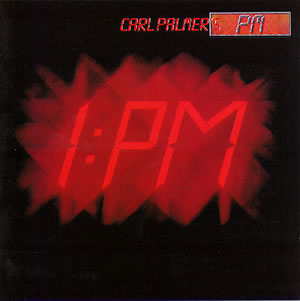 STUK: PM, with Emerson Lake and Palmer drummer Carl Palmer, is another big name to throw into the pot. How did that come about and why did the band last such a short time and just one album (1PM)?
STUK: PM, with Emerson Lake and Palmer drummer Carl Palmer, is another big name to throw into the pot. How did that come about and why did the band last such a short time and just one album (1PM)?
Erik Scott: This was the summer of 1979 in LA, and I got a call from Carl's management. Apparently Carl was putting a group together, and although they had done a fair bit of auditioning, they had everybody except a bassist. I think I was recommended by some people who had seen me playing in NYC with Tonio K. So I went to their rehearsal space, went again, and was offered the gig. We recorded in Munich, then prepared for a tour in London. Sometimes the chemistry of the players doesn't always jibe with the material chosen, sometimes the talents of the people just don't quite mesh into what was hoped for. Shortly after the release of the album, a tour was considered, cancelled, and we went our separate ways in April 1980.
STUK: PM also included a certain John Nitzinger, later of course to also be in the 'Special Forces' band. Was it this connection with John that got him the gig with Alice later?
Erik Scott: Yes. After the FTF tour ended at the end of 1980, Freddy Mandel left Alice's band. He was replaced on the 'Special Forces' album in the spring of '81 by Davey Johnstone and Danny Johnson, but I believe neither could do the tour. I knew Nitzinger from the PM group. John is a primal rocker on guitar, and I thought he might fit. He came and played, and Alice hired him. Also ,remember that Alice's vision for this period was lean, tough, and stripped down, as you have pointed out in this conversation. Most of the large character props were discarded.. .the stage was designed to suggest a cross between an alley from West Side Story and the end-of-the-river scene from Apocalypse Now, with the band members resembling a gang of mercenaries under the command of you know who.
STUK: How did you first hook up with Alice Cooper? You mentioned to me a show with Flo And Eddie at the Troubadour in LA around 1974?
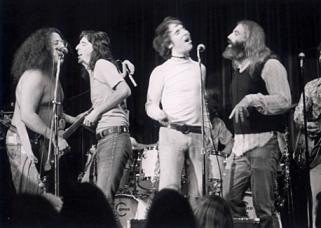 Erik Scott: I did first meet Alice when he came up and joined Flo & Eddie on the Troubadour stage over the Christmas holidays of 1974, but that's not how or when I joined his band. In the spring of 1980, shortly after coming back from England following the Carl Palmer project, Duane Hitchings called and said that Alice was putting a new band together, and was having different musicians come and play. So Duane, Ross Salomone, Mike Pinera, and I went down, played some Cooper tunes, and got hired along with Freddy Mandel, who had been working with Alice for awhile.
Erik Scott: I did first meet Alice when he came up and joined Flo & Eddie on the Troubadour stage over the Christmas holidays of 1974, but that's not how or when I joined his band. In the spring of 1980, shortly after coming back from England following the Carl Palmer project, Duane Hitchings called and said that Alice was putting a new band together, and was having different musicians come and play. So Duane, Ross Salomone, Mike Pinera, and I went down, played some Cooper tunes, and got hired along with Freddy Mandel, who had been working with Alice for awhile.
STUK: You also mentioned you first saw the Alice Cooper show on the 'Welcome To My Nightmare' tour in `75. What were your impressions?
Erik Scott: It was'75 or'76...Killer...the show was mesmerizing... I went with a friend from Columbia Records... Flo & Eddie's label, and the theatrics and tunes of the "Nightmare" tour, and the band, were just something I hadn't seen before. And I wasn't a babe in the woods. Along with Flo & Eddie, we had been touring with Starship, whose "Red Octopus" album was #1 all summer, Steve Stills, Fleetwood Mac, and the Doobies, whose "Takin it to the Streets" was #1 all summer of "76. Major tours. But this show was different... a movie. It, along with an early Springsteen show at the Santa Monica Civic in "76, are still the most impressive live music events I ever witnessed, although they were very different in style.
STUK: You narrowly missed recording on 'Flush The Fashion' but joined Alice Cooper in time for the tour supporting the album in 1980. 'Flush The Fashion' saw a change of direction for Alice. Much more stripped down and he was moving away from the style he was best know for. Even the whole Alice look changed. Do you remember the first time Alice walked in with the new look, minus the trademark black eye make-up?
Erik Scott: No, not really. I just remember that it was quite a look, different or not. I can however remember very clearly the first impression of the next year's drummer, Jan Uvena, at his first gig. It was at Concord, Northern Cal...the first concert of the 'Special Forces' tour the following year. The band was the same except for the new guys, Nitzinger and Uvena, and I don't think we had time to do alot of production rehearsals (with stage outfits, et al) , and the band did alot of work with the new guys while Alice was doing interviews... so when Alice came bursting out of a locker onto the stage as the smoke cleared for "Who Do You Think We Are?...the crowd goes nuts, and I turn around, look at Jan, and he's goin' nuts too. Mouth kinda hanging open and all... kind of an amazed look on his face. I almost cracked up watching Jan watch Alice!
STUK: (From WickedYoungMan) Was it surprising that you were helping to write and perform "New Wave" and "Punk" influenced songs for a man known for his gritty hard rock of the 1970s?
Erik Scott: Well I never really thought of it in those terms. The music/songs still had edge. attitude, mood, and rock energy. "Clones" from 'Flush The Fashion', and "I like Girls" from 'Zipper Catches Skin' possibly were a bit of a departure, but all artists morph, grow ,and often re-invent themselves to keep from becoming static and/or predictable. I remember thinking, as a fan, that the "Welcome to My Nightmare" and "Go To Hell" albums seemed to go to a different place from what preceded them... great, but a bit different, and definitely still Alice.
STUK: The 'Flush The Fashion' and 'Special Forces' bands had a very different sound to previous Cooper bands. Much more edgy for want of a better word. Was it hard deciding which old songs worked with the new approach and could be included in the set? And were there any Cooper classics you wish you'd had the chance to play but didn't?
Erik Scott: We didn't have too much trouble working up whatever Alice wanted to play. He might have edited his wish list in his head before he asked us to play some of the older songs, but it was a good tough rock band that could handle the attitude, mystery, and power that Alice music needs. I sometimes wish we could've played "Pain" a bit more, and although we didn't have a Presidential election year, it would have been fun to do "I Wanna Be Elected". I do know, as I've mentioned, Alice really didn't seem to want to do any song that could vaguely be considered as slow. Only shortened versions of "I Never Cry" and "Only Women Bleed" made the shows. Good version of "Bleed" though great song.
STUK: On the 'Flush The Fashion' tour the band were introduced as "Hostage Fever". Do you recall where that came from?
Erik Scott: Must have been Alice.
STUK: How about a few memories or road stories of the "Flush The Fashion" band members..
STUK: Fred Mandel
Erik Scott: Nice guy, fine musician, didn't seem like the blood-crazed mercenary type.
STUK: Mike Pinera
Erik Scott: Wild guitar showman, definitely comfortable as the blood-crazed mercenary type.
STUK: Duane Hitchings
Erik Scott: Fine keyboards and composer,
STUK: Ross Salomone
Erik Scott: Solid Drummer
STUK: Alice Cooper!
Erik Scott: Totally enjoyed the time with AC. He's very creative, funny, always thinking about ways to make the music more interesting. Good stuff... He's a movie!
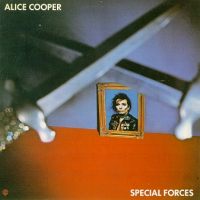 STUK: 'Special Forces' was the first Alice album you performed on, and you co-wrote your first Alice Cooper song with 'You Want It, You Got It'. How did that song come about?
STUK: 'Special Forces' was the first Alice album you performed on, and you co-wrote your first Alice Cooper song with 'You Want It, You Got It'. How did that song come about?
Erik Scott: Just got together with Craig Krampf,.drummer on 'Special Forces', and Billy Steele, and had a musical idea. Then Eric Kaz had an idea for the title concept. Alice heard what we were messin' with, and wrote the lyrics.
STUK: (From Hywel) How did the re-recording of 'Generation Landslide' come about and do you know why it was made to sound like there was an audience there when it isn't a live recording?
Erik Scott: I really don't know. I wasn't part of that decision making process. I know we recorded the song at producer Richie Podolor's studio.
STUK: Alice famously returned to drinking around this time, and rumours of drugs refuse to go away. Did you notice a difference in his behavior both on and off stage as he returned to his old habits?
Erik Scott: Alice was consistent in his behavior, onstage and off. Smart, funny, always into giving a great show.
STUK: The 'Special Forces' tour saw the arrival of Jan Uvena and John Nitzinger. How did their styles differ from their predecessors?
Erik Scott: Well, as I mentioned earlier, John was a raw primal force with the guitar, and had a real gut-punch rhythm style, while Wagner was especially good with the searing melodic soloing, as was Steve Hunter, although I never played with Hunter. Freddy Mandel did a bit of everything, being a keyboard player as well. Ross Salomone, who played drums on the 'Flush The Fashion' tour, played the drums like he was driving an 18 wheeler... big Craig Krampf, who played drums on the SF album, was an extremely solid rock drummer, who played so loud that I overheard one sound engineer say that they wouldn't need to use microphones on him. When Uvena came in, he brought a little of that east coast swinging hi-hat/snare thing with him...nice syncopated stickwork, and a solid kick.
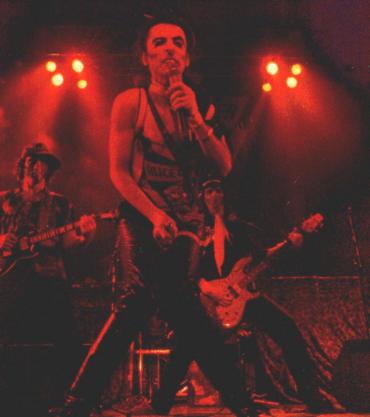 STUK: Duane Hitchings seemed to disappear half way through the tour to be replaced by Wayne Cook, who no one seems to know much about (in fact I haven`t even found a picture for the site yet!). Who was he and where did he come from?
STUK: Duane Hitchings seemed to disappear half way through the tour to be replaced by Wayne Cook, who no one seems to know much about (in fact I haven`t even found a picture for the site yet!). Who was he and where did he come from?
Erik Scott: Duane did all the keys from the 'Flush The Fashion' tour of '80 until the European tour of winter 1982, including the SF album and tour for which he also co-wrote several songs. By the way, during those albums at least, Alice wrote all the lyrics. The co-writing credits acknowledged guys who had been involved with the music composition. Duane was having good success writing, and decided to concentrate on that. So for the European tour of late winter/spring of 1982, Wayne Cook was hired to do the keys on that month-long segment.
STUK: John Nitzinger, especially, seems to have been a real character with a long history in music (including PM with you). What's your best memories of working with John?
Erik Scott: Well ol' Nitz enjoyed being a bit of a Texas tough guy, with a "been there, done that" veteran rock attitude... which was all well and good... didn't get too excited about stuff... good guy to have in the trenches when the metal hits the meat. A real stoic. But then Alice had two shows over Halloween in Detroit. And Detroit figures Alice as a home-town boy, don't talk to a Detroiter about Phoenix (another town with a good claim to Alice). Sold out Joe Lewis Arena, 31,000 serious hometown Cooper fans, indoors... on Halloween... know what I mean?? So during the opening act I went up to the wings of the stage to get acclimated, and it seems as if the cavernous Arena is a mile long, packed to the rafters (a half mile up) with as serious and loud a rock and roll crowd as I'd ever seen. So I climbed back down, went backstage, ran into the seemingly ho-hum Nitzinger, and asked him if he'd checked the crowd out. He kinda yawned and allowed as how he might as well take a gander. And then when he came back...well I just enjoyed the look on his face... I think he'd been waiting for a show like that.
STUK: Do you remember the show during the 'Special Forces' tour when Alice stabbed his sword through his leg?
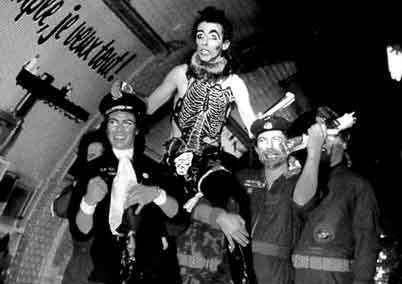 Erik Scott: Sure do. In France, Paris I think. At the end of "Go to Hell" Alice holds the sword high above his head, and as the last chord is slammed shut, he throws the sword into the stage at his feet. The lights fade to black, with one pin spotlight on the waving sword on the otherwise blackened stage...cool visual. Except this time I guess he was slightly off-target and slams the sword into his boot-clad leg just above the ankle....ooops. I understand it didn't want to pull out either. But the rapier was finally yanked from its unintended target, and the show goes on.
Erik Scott: Sure do. In France, Paris I think. At the end of "Go to Hell" Alice holds the sword high above his head, and as the last chord is slammed shut, he throws the sword into the stage at his feet. The lights fade to black, with one pin spotlight on the waving sword on the otherwise blackened stage...cool visual. Except this time I guess he was slightly off-target and slams the sword into his boot-clad leg just above the ankle....ooops. I understand it didn't want to pull out either. But the rapier was finally yanked from its unintended target, and the show goes on.
STUK: The UK leg of the 'Special Forces' tour was considered so successful that the band took the unusual move of heading into the studio to record a special song, the classic 'For Britain Only', especially for the UK fans. How did the song come about?
Erik Scott: Alice said let's do this thing...a 4 song EP as a little commemoration of the successful UK tour....... three of the live songs we recorded in Glasgow, and a new one especially written. So we band guys start throwing out musical ideas... we get two main track ideas, and Alice picks the one you now hear. He writes the words, we flesh it out and arrange it in the studio, Air Studios in London I believe... and we record it with Steve Churchyard engineering.
A bit of trivia: the second engineer on this session was a girl named Renata, who later married Elton John for about three weeks. The reason I recall her is that Alice and I wanted to make an edit on the 2 inch master tape, (remember that the tune was being written and recorded on the spot) and alot of engineers get a little nervous about chopping up the master reel, Steve Churchyard included. But this girl doing the second engineering pops right up and says "I'll do it"...and she did...and then married Elton.
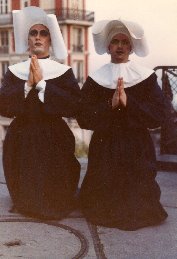 STUK: What are you memories of the "Alice In Paris" French TV special, a real lost gem?
STUK: What are you memories of the "Alice In Paris" French TV special, a real lost gem?
Erik Scott: Geez, too many memories to recount here. But basically twelve songs, 7 or 8 filmed like videos at locations in and around Paris; the (or should I say a ) Red Light District in Paris for "Prettiest Cop On the Block), The Cathedral at Montmarte for "Go To Hell" etc. And four or five songs shot at a soundstage with a set. I will recount one though, the filming of "Go To Hell" on the steps of the Cathedral Montmarte. Alice was dressed up as only he can, and the band was costumed as nuns...French Nuns (I couldn't say which denomination). The costuming and set-up had taken most of the afternoon, the sun was setting, and the local parishioners were showing up for 7 o'clock mass. And as they approached this historic old French cathedral, their own historic sanctuary, there, on the steps of the Cathedral, hidden smoke machines were throwing a swirling, blowing fog around five rather large nuns playing guitars, all the while being tormented by a dervish of a demon brandishing a sword and singing, while a demonic anthem roared from the depths proclaiming that they were, in fact, going to hell. Well... this was more than several of them could handle. Holding up the sign of the cross and shouting fearfully.. "Diabla, Diabla" (or whatever is French for the devil) they started running amok and had to be reassured by a Priest who emerged from the church to quiet them and assure them that it was not, really, the Devil and his henchnuns, coming to cart them off!
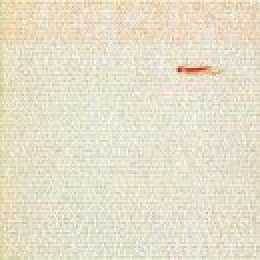 STUK: After the end of the 'Special Forces' tour work began on 'Zipper Catches Skin', which you had a large part in creating, including producing and co-writing most of the material. How did the new songs come together?
STUK: After the end of the 'Special Forces' tour work began on 'Zipper Catches Skin', which you had a large part in creating, including producing and co-writing most of the material. How did the new songs come together?
Erik Scott: In some cases, Alice would have some lyrics, a verse or a concept, and we would develop music to fit the mood or match the cadence of lyrics, and start chasing the idea down. At other times, the players on the album got together in rehearsal hall and starting coming up with musical ideas, if anything caught Alice's attention we would develop it while Alice worked on a lyrical motif, and as his lyrics took shape and the concept of the song started to emerge, we would shape, or reshape the music to fit the song concept. In these collaborative efforts, a free for all could develop as ideas were considered and either discarded or would morph into something else, the quest being to develop a cool musical landscape that set the stage for the lyric. If I remember correctly, "Make That Money" was already in existence to a fair degree, having been worked on by Alice and Wagner previously. "I Am The Future" was mostly outside from Lalo Schifrin.
STUK: (From Andy Michael) You co-produced 'Zipper Catches Skin' with Alice himself. How did that come about and how did that work in the studio in practice?
Erik Scott: I had production experience prior to Alice, and I helped with the recordings for the French video. When it was decided to do the "For Britain Only" EP, management couldn't come to an agreement with the right producer in the time allowed, so Alice and I did it. That went pretty well, so when it was time to record the next album, we discussed
Alice and I doing the production. Alice had strong ideas for the direction of the
record, and I was very much interested in getting involved with the production, so
we did it.
In practice, it involved pre-session discussions, and of course the investigation of all the ideas
that came during the writing and rehearsal periods. We were both in the studio during the
recording, constantly tweaking and trying to get to where Alice had envisioned. These
sessions were predominantly recorded during the day, so Alice and I would frequently
meet in the evenings to monitor and discuss the days' progress and to plan the next days' sessions.
STUK: Dick Wagner returned for 'Zipper Catches Skin', playing and co-writing a few tracks before leaving before the album was completed. What was it like working with someone that was so associated with Alice Cooper's success in the past?
Erik Scott: I enjoyed working with him. Simply put, it's more fun to work with great musicians than not, and Dick Wagner played some great guitar...I hope he's still playing, maybe even better.
STUK: (From Shoesalesman) Is there a story behind the title 'Zipper Catches Skin'?
Erik Scott: Outside of the image and sensation that comes to mind, I know of no particular story. I know it's in the lyric to "I Better Be Good"...slightly paraphrased "zipper grabs skin".
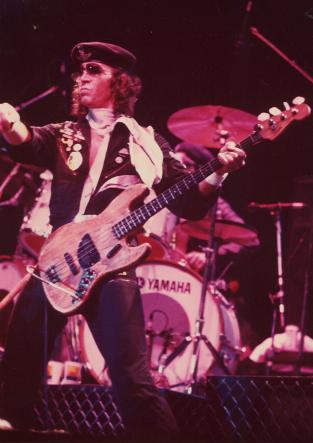 STUK: Why was there no tour to support 'Zipper Catches Skin'? Was a tour ever planned and if so how far did it get before it was canceled?
STUK: Why was there no tour to support 'Zipper Catches Skin'? Was a tour ever planned and if so how far did it get before it was canceled?
Erik Scott: We had been working solid for over two years since I had joined Alice, and he had been working on the 'Flush The Fashion' album before that, releasing an album every year for three years running, and touring constantly, so I think he wanted to spend some more time with his growing family. I know that during the recording he was planning on taking a break.
STUK: (From Giles, Petri and others) Dick Wagner described the 'Zipper Catches Skin' recording sessions as a "drug induced nightmare", yet Alice always denies any drug involvement (but admits he was drinking again). While obviously a sensitive issue, what is your take on the period and Alice's health at the time?
Erik Scott: You know, I remember alot of live performances, studio recordings, and experiences we had during those years, but I don't remember who had a beer or not. I think I can recall Alice having two drinks, and one was after the French show when the sword got stuck in his ankle.
STUK: How do you feel about 'Zipper Catches Skin' when you look at it now and its relative lack of success?
Erik Scott: From an artistic standpoint, I might try to do a few things differently. Twenty-five years of musical life later, and I look at music production in a different light. I also have spent years developing bass and rhythms outside of the rock genre, and have expanded ideas for what musical styles are available for use in rock. But then, I remember that this record was meant to be lean, stripped down, and low on frills...punkish and bratty..."I Better Be Good" captures that attitude: a snotty machine gun rejection of authority that makes me smile when I hear it. I might lobby for another song...try to get a classic, and know it before it comes out. Ya see, when it comes right down to it...it's the songwriting that elevates an album or a vocal artist, to a higher level. Songs like "Eighteen" and "School's Out" got Alice exposed to the world, then "Only Women Bleed". Classic stuff. Even (though Alice couldn't seem to get thru this one quick enough live) "I Never Cry' worked... probably even better because it came from the guy with such a tough guy image. This is some of the great stuff that producer Bob Ezrin did with Alice. You know, as far as record producers go, they don't come any better than Bob Ezrin. So, I'd probably lobby for another song to pick from.. maybe a different approach here or there. But you know, every album an artist creates is a snapshot capturing a bit of an artist/musician's mental,emotional,and creative state at that particular point in time, and as such is valid. From a commercial point of view, there are so many things that come into play and cannot be controlled. Label situations, the state of radio, record promotions or not, tours or not, the trends which so frequently grip the listeners and the industry itself, and on and on. I'd feel bad if every record before and after "Zipper" had been huge commercial successes, but that's not the case.
STUK: Alice has never played anything from the album live.. but have you ever played any tracks from it with your other bands and what are your favourite tracks from the album?
Erik Scott: Except for encores and other funtime, I've always thought that if you're gonna cover some major artist's song or record, you need to do it substantially different, give it a different spin. Otherwise, what's the point, kinda. Alice records are so imbued (or should be) with his own personality, his own Alice-ness, that it would be rather difficult to cover them, I think. Favorites from Zipper?....hmmm, well as I mentioned above, "I Better Be Good" because its such a punked out bratty rejection of authority that I gotta smile, "Adaptable" feels good, and "Tag" has some of the Cooper horror-macabre-mystery thing going. And the album ends with this uptempo, eighth-driven sprint of a really silly song, lyrically very clever, very silly thing called "I'm Alive" (That was the day my dead pet returned to save my life)... my gosh, what can I say. But the track just punk 8s its way along at high speed,( all downstrokes for you guitar guys)... wacked out tune.
STUK: (from Jollyjon) There is a very rare promotional advert featuring Alice in a bathroom being hassled by journalists. Poor quality copies exist in fan circles. Do you remember the clip and are you in the crowd scenes?
Erik Scott: I remember hearing about it during that era. I wasn't there.
STUK: (from NurseRozetta) Where there any unreleased songs from the 'Special Forces' or 'Zipper Catches Skin' sessions?
Erik Scott: I don't think so.
STUK: (From Hywel) Were the drums on 'Zipper Catches Skin' all real drums?
Erik Scott: Yes... no machines.
STUK: After 'Zipper Catches Skin' was recorded and the band went its separate ways you worked with Kim Carnes and Signal amongst others before arriving with Sonia Dada where you remain to this day. How did you get from hard rock of Alice Cooper to the more laid back sound of Chicago based Sonia Dada?
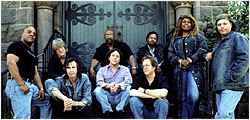 Erik Scott: A musician is often asked "who has been your greatest influences as a musician/player"?
Well,the biggest influence on me is always who I am playing with at that particular moment. What are they playing?... and how are they playing it? Is there a particular style we are trying
to deliver the song in? Or is the style wide open? When Sonia Dada records we just try to find the
approach that makes the song work best... only being limited by our imaginations.
Erik Scott: A musician is often asked "who has been your greatest influences as a musician/player"?
Well,the biggest influence on me is always who I am playing with at that particular moment. What are they playing?... and how are they playing it? Is there a particular style we are trying
to deliver the song in? Or is the style wide open? When Sonia Dada records we just try to find the
approach that makes the song work best... only being limited by our imaginations.
The band has some veteran musicians who enjoy playing different styles,
plus we kinda can't help it... we have three black singers, so you know there is gonna be
some gospel-type harmonies sooner or later, and we have guys with an appreciation of rock, R&B, jazz,
folk, psychedelia... and we love playing all of it.
When we started in 1990, the music press loved phrases like " multi-racial genre bending", and" Little Feat meets the Temptations". We remain a rather experimental band, with an element of soul.
Not married to any style, we embraced diversity. Whatever seemed to make the song come alive.
Dan Pritzker, the main writer who writes all the lyrics, in describing our
recording endeavors, said it well: " it's rather like holding hands and jumping off a building
together".
Once again though, the songwriting is the key. For me, Dan and Alice have that one
thing in common...they are both stylistic writers who are capable of writing great songs... and have.
The choice of subject matter and the musical presentation differs of course, and often wildly,
but hey, that's what gives each their own thing. Of course, Alice's best songs have been heard by
a great many more people.
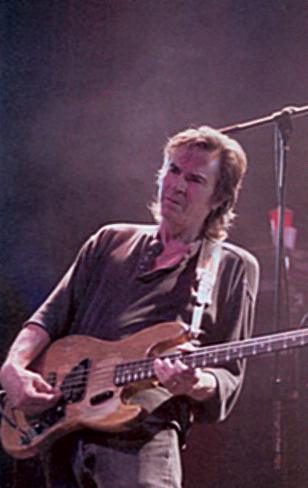 STUK: Sonia Dada isn't a name most Alice fans are familiar with yet you had a number one single and number two album in Australia of all places. How did that come about?
STUK: Sonia Dada isn't a name most Alice fans are familiar with yet you had a number one single and number two album in Australia of all places. How did that come about?
Erik Scott: The first single from the first album started to get some airplay, so we went down there at the suggestion of our soon-to-be manager, Michele Tayler, who was working with a Festival in Melbourne. We did all the TV shows and promo, played live and the thing just took off. We had a single at #1 and #3 simultaneously, and the album was #2. Most played single of the year on radio. That can boost a career.
STUK: Which Sonia Dada release would you suggest is best for an Alice Cooper fan to start checking the band out?
Erik Scott: Sonia Dada is not a rock band, more of an experimental band, with soul. Although there are tracks that rock,
it's more accurate to say the stuff grooves. You know... "Little Feat meets The Temptations, with bluesy gospel,
jazz, folk, and the occasional rock and middle eastern influences." ha!
The first album "Sonia Dada" veers wildly stylistically, I know a Cooper fan would dig "Jungle Song" and
"New York City". Sample lyric from "Jungle Song" ....
"I want to live in the jungle, you don't have to wear no clothes... they got no boutiques....nothing chic... in the Jungle, they don't have no discos."
If I had to pick one, or two that music fans might check out, I'd probably say
the second album "A Day at the Beach"... many fans like that the best... "Screaming John",
"Lester's Methadone Clinic", and "Amazing Jane".
Or maybe the sixth album...some middle-eastern sounds, psychedelic soundscapes spice it up.
I can't help but think a Cooper fan would dig "Dark Visions"
There is a live album "Lay Down and Love It Live" with a four piece horn section that has many
of the best songs written before 1998. Great version of 'Lester's Methadone Clinic"
STUK: When researching for this interview I noticed how much Sonia Dada seem to have embraced the power of the internet. The band web site (www.soniadada.com) is packed with music and video content so people can check the band out. How much has the internet been a part of the bands success?
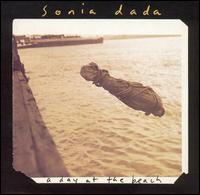 Erik Scott:The internet is amazing. In the past, musicians/artists and fans were totally at the mercy of the
record company and their publicists. Now, not only can you get the basic stuff like tour dates and
record release dates, but you can get all kinds of info with a few keystrokes.
Musicians can get to fans, fans can get to musicians, and fans can get to other fans. Sites like yours
provide a wealth of info, and help keep it all alive. Sonia Dada's webmaster, Ron Schwartz, also
does alot of good stuff on the website. He has
put up a 24/7 radio feature, where you can hear various tracks from all 6 released CDs, unreleased stuff,
and wild remixed versions, which he likes to do, being a keyboard- computer- producer type guy.
Erik Scott:The internet is amazing. In the past, musicians/artists and fans were totally at the mercy of the
record company and their publicists. Now, not only can you get the basic stuff like tour dates and
record release dates, but you can get all kinds of info with a few keystrokes.
Musicians can get to fans, fans can get to musicians, and fans can get to other fans. Sites like yours
provide a wealth of info, and help keep it all alive. Sonia Dada's webmaster, Ron Schwartz, also
does alot of good stuff on the website. He has
put up a 24/7 radio feature, where you can hear various tracks from all 6 released CDs, unreleased stuff,
and wild remixed versions, which he likes to do, being a keyboard- computer- producer type guy.
You website-master guys do a great service for everybody...so on behalf of everybody...thanks!
STUK: Is there any last words you'd like to say to Alice fans around the world?
Erik Scott: Alice is an original, enjoy his live shows, they probably won't last forever.
I'd like to say a huge thanks Erik for taking so much time to answer so many questions for us. Make sure you check out Sonia Dada at their website www.soniadada.com where you can hear sound clips and buy the albums! If you wish to talk to Erik you can email him at eski33@comcast.net and make sure you also check out Erik's new official site over at erikscottbass.com.